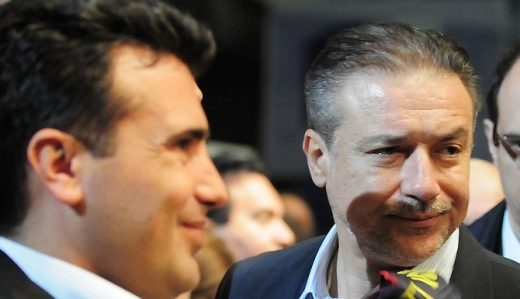A little more than a year has gone by since the infamous BGNES interview, in which Zoran Zaev accepted the key demands made by Bulgaria against Macedonia. The interview caused a deep rift in the SDSM party, and hugely contributed to Zaev’s fall from power, which should be completed in a matter of weeks.
In the interview, eager to appease Bulgaria and get it to lift its veto against Macedonia’s EU accession talks, Zaev said that he agrees that the Bulgarians were not occupiers in Macedonia in the Second World War, but merely “administrators”. Zaev also agreed to order the removal of the text “Bulgarian fascist occupier” from memorial plaques from the war put in places where partisans were killed fighting the Bulgarian army.
Zaev also said that legendary Macedonian hero Goce Delcev self-identified as an ethnic Bulgarian, and blurred the distinction between the Macedonian and the Bulgarian nation.
The interview caused immediate street protests from the VMRO-DPMNE party, but possibly even more damaging for Zaev, it turned the old party guard against him. Former President and Prime Minister Branko Crvenkovski announced that he is freezing his membership in SDSM until Zaev is removed from office, and a dozen of former top officials, mainly from the Skopje wing of the party, joined him. It’s believed that their feud with Zaev led to the dramatic drop of support for the party in the 2021 local elections, in which Zaev said that he will resign if he loses the capital Skopje and the majority of municipalities.
After his landslide defeat, Zaev resigned as party leader and is expected to be out of the Government soon. A new leader is being elected on December 12th, a year and three weeks after the BGNES interview, and just two days ahead of the next European Council, where Bulgaria is expected to again block Macedonia’s EU accession talks.
Zaev endorsed little known Deputy Finance Minister Dimitar Kovacevski as the new party leader, who is running all but unopposed. Because of his complete lack of track record on the issue of Bulgaria, or any other issue, it’s too early to say whether he will be able to seal the rift between Zaev’s, Crvenkovski’s and Sekerinska’s wings of the party that was caused by Zaev’s new policy toward Bulgaria. Bulgaria’s continued veto is not helping, as it only indicates that the demands are becoming bigger and more intrusive.





Comments are closed for this post.